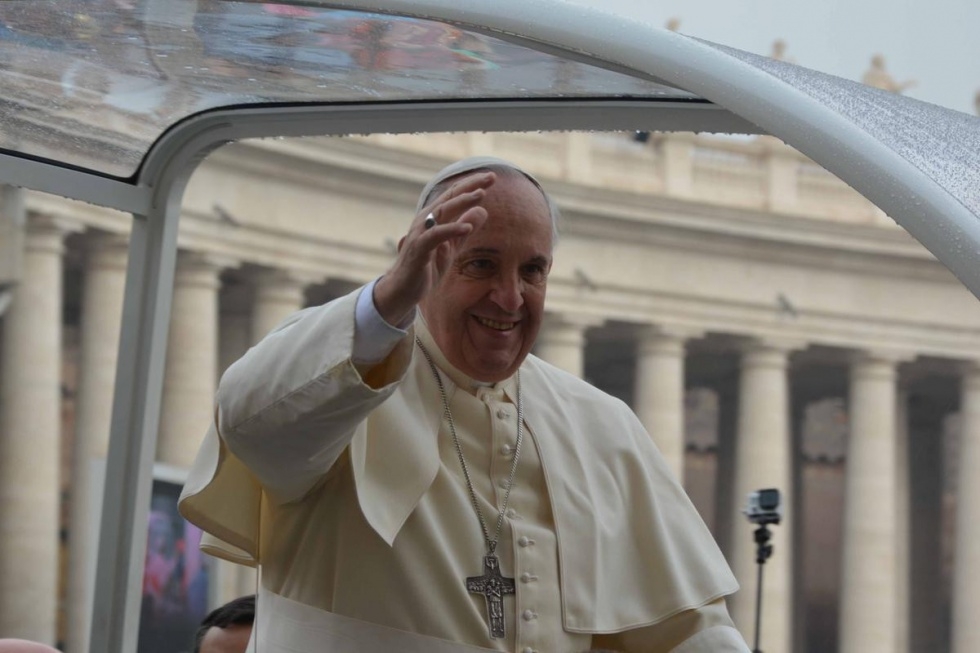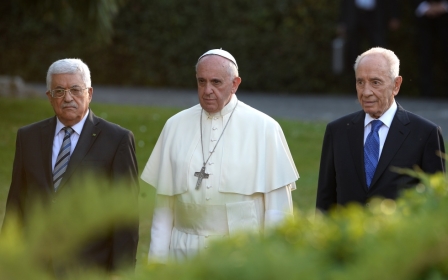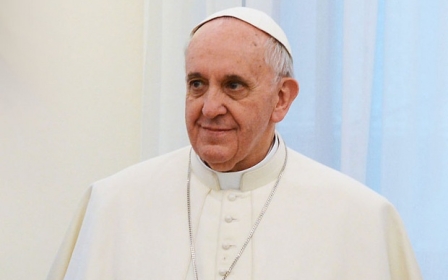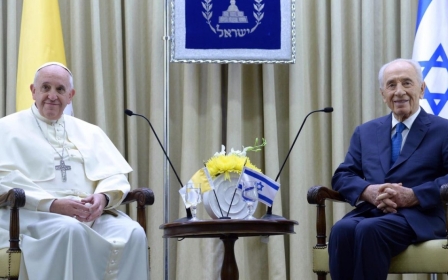Pope Francis tour of Turkey will highlight plight of refugees

This Friday, Pope Francis heads to Turkey on his sixth international visit, an event spread over three days in several major Turkish cities, including the capital, Ankara, where he will be the guest of President Recep Tayyip Erdogan.
Though only 0.05 percent (about 35,000 people) of Turkey’s population is Catholic, the country’s history and geography in New Testament times combine to make it a place to which all recent popes since Paul VI in 1967 have made a high profile visit.
From the papal point of view, these visits are all probably mainly religious occasions. Though there are no Catholic crowds to welcome the Pope, Turkey includes the seat of the second most senior figure in Christianity, the Greek Orthodox Patriarch in Istanbul, and it also shrines such sites as the (supposed) House of the Virgin Mary in Ephesus, near Izmir.
Relations with the Orthodox Church are probably the most important item on the visit’s agenda. The Catholic and Orthodox branches of Christianity are slowly trying, inch by inch, to repair a breach between them that began over a thousand years ago. In this visit, Pope Francis will break new ground by attending a Greek Orthodox liturgy with the patriarch.
But Turkey is a large and almost entirely Muslim country so diplomatic formalities fix the form of papal visits there. Turkey’s primary relationship with the Vatican is political and diplomatic, rather than religious, and stretches back into Ottoman times. Though the Catholic Church does not enjoy official religious recognition in Turkey (a fact which has led to occasional court battles over the ownership of properties and even confiscations) Turkey and the Vatican regularly exchange ambassadors.
The Pope’s visit is a state visit made at the invitation of the Turkish President and the Pope, who is regarded as the head of a sovereign country, will see both the president and prime minister. However, at the time of the last papal visit, by Benedict XVI in 2006, notices were to be seen in the Ankara journalists’ centre referring somewhat inaccurately to the ‘President of the Republic of Vatican.’
Despite some misgivings over matters such as security, Ankara undoubtedly welcomes the visit.
Like its predecessors, this papal visit represents a chance to highlight Turkey’s European credentials, in general, and its continuing aspirations to join the EU. It also helps to draw the sting out of opposition by leading Catholics to the idea of Turkish EU membership. Pope Benedict gave cautious endorsement to the idea after his 2006 visit, even though as a cardinal, he and senior colleagues had been hostile to the idea on the grounds that Turkey is a Muslim country.
Pope Francis, coming from a Third World country, is likely to be more sympathetic to the idea of a Muslim member of the EU. He recently compared the EU unflatteringly to “an elderly and haggard grandmother”. However these days Turkey’s EU candidacy, though not dead, is on a political back-burner and shows no signs of reviving at an early date.
In the background of Turkish-Vatican relations there are some serious tensions. As already mentioned, unwillingness to give the Catholic Church a recognised status in Turkey is one problem. In Ankara’s view, the country is nevertheless highly tolerant towards its religious minorities. This is despite the fact that since early 2006 - when Andrea Santoro, a Roman Catholic priest, was murdered in the Black Sea town of Trabzon by a teenage gunman - there have been a series of attacks, several fatal, on Catholic clergy in the country.
The worst came in June 2010 when Luigi Padovese, Bishop of Iskenderun, was knifed to death by his chauffeur while reciting a prayer. The attack was treated as an isolated incident by the courts.
In May 1981, Mehmet Ali Agca, an ultra-nationalist, shot and nearly killed Pope John Paul II in St Peter’s square. Agca, now at liberty after serving a jail sentence and repenting his action, has asked to be allowed to meet Francis during his visit, although it is doubtful that the Turkish authorities will permit it to go ahead.
Like Benedict XVI, Francis will visit Islamic clergy in the Sultanahmet (Blue) Mosque in Istanbul. Some Catholics, and also Turkish secularists, believe he may privately raise the question of St. Sophia - the sixth-century Byzantine basilica which is currently a museum - with the Turkish authorities. Some politicians would like to see it reconverted into a mosque, but the Pope is keen to keep the status quo.
In November 2006, draconian security measures across Ankara and Istanbul to ensure the papal visitor’s safety, brought both cities close to shutdown during the two days of Benedict’s visit. The same will probably happen this time. However the risks have grown.
Francis is averse to high level security being allowed to prevent him from having close contact with ordinary people on his tours and is said to be trying to insist that he goes through both cities in an ordinary car, rather than an armoured vehicle. For the Turks though security will definitely come first.
Italian newspapers have been circulating reports of possible (though unspecified) plots against the Pope. Rome, i.e. the Catholic Church, does seem to figure in warnings in Dabiq, an on-line magazine of the Islamic State, by the IS spokesman Mohammed al-Adnana, that "We will conquer your Rome..." and "the Islamic State will remain until its banner flies over Rome." So Francis risks being the target for extremist hostility.
The security problem partially reflects tremors from the disorders in Iraq and Syria on the region. Turkey is home to nearly 2 million refugees from Syria and it hopes that Francis will help draw the attention of Europe to their plight and the need for other countries to assist Turkey in its humanitarian burden. Francis may also hold a meeting with refugees from Iraq and Syria, almost certainly including Christians displaced from their traditional centres in those countries.
On the need for peace in the Middle East and the refugee issue, there will likely be identical views between the Pope and his Turkish hosts. On the other issues, we will find out more when the visit begins on Friday.
- David Barchard has worked in Turkey as a journalist, consultant, and university teacher. He writes regularly on Turkish society, politics, and history, and is currently finishing a book on the Ottoman Empire in the 19th century.
The views expressed in this article belong to the author and do not necessarily reflect the editorial policy of Middle East Eye.
Photo: Pope Francis greets the crowd as he arrives for his weekly general audience at St. Peter's square on November 26, 2014 in Vatican City (Baris Seckin/AA)
New MEE newsletter: Jerusalem Dispatch
Sign up to get the latest insights and analysis on Israel-Palestine, alongside Turkey Unpacked and other MEE newsletters
Middle East Eye delivers independent and unrivalled coverage and analysis of the Middle East, North Africa and beyond. To learn more about republishing this content and the associated fees, please fill out this form. More about MEE can be found here.





